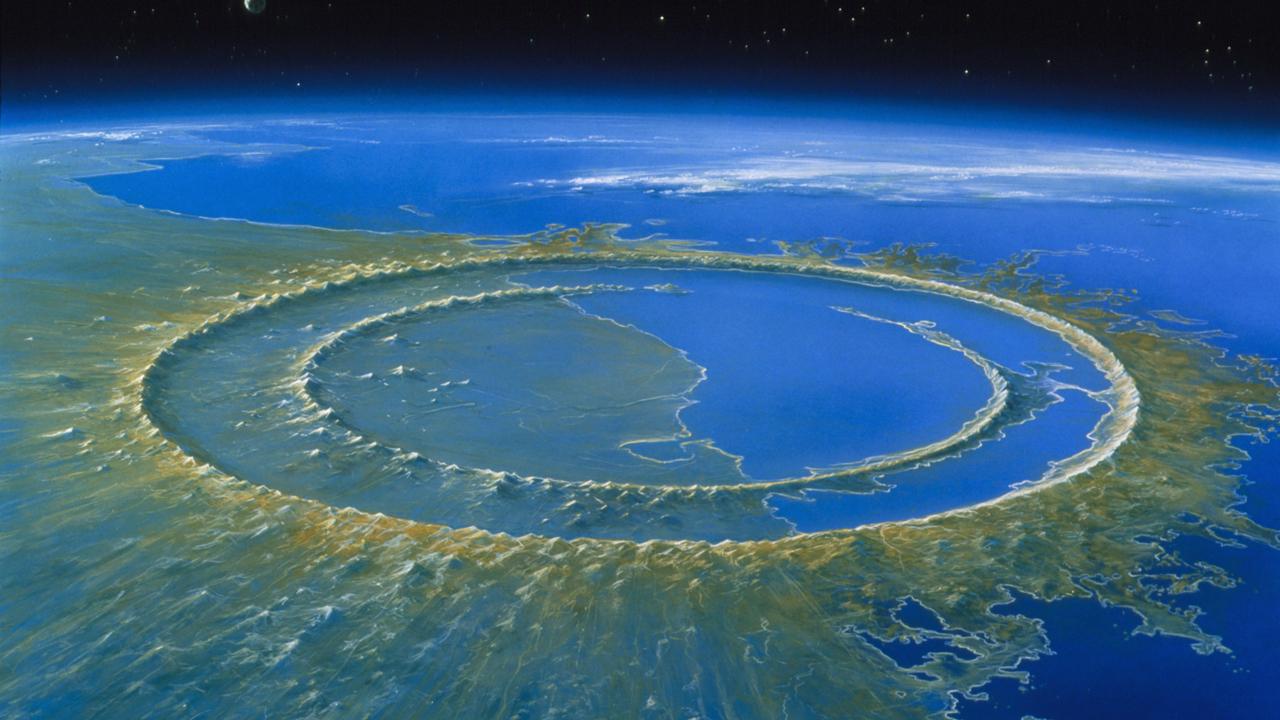The massive asteroid that killed all the dinosaurs millions of years ago may have ignited a chain of catastrophic volcanic eruptions on land and under the sea, according to a controversial study.
Around 66 million years ago, a rock six miles wide crashed into Earth from space, creating what is now the Chicxulub crater in the Yucatan, and setting off deadly world events, CBS News reports. Incredibly hot particles rained down, causing fires across the globe and dramatically increasing temperatures. The Earth became darker as clouds of particles kept the sun’s light and energy away, and cooling the planet for around 45 degrees less over the following years. The crash also resulted in earthquakes a hundred times more powerful than modern-day quakes.
The asteroid killed three-fourths of all life on Earth, especially most land animals and plants. And there are reverberations even to this day, a new study says. According to researchers, new evidence suggests that the shaking back then prompted huge volcanic eruptions that ejected gases and particles into the air and water.
Sometime after the crash, the study authors state, extra strong eruptions on the ocean floors spewed out a tremendous amount of molten rock, so much that it would have covered the entire continental United States as deep as two hundred feet.
Joseph Byrnes, University of Minnesota geophysicist and lead author on the study, said,
We’re showing there was a lot more going on than we thought. We’re painting a new sequence of events.
These underwater volcanic regions, or mid-ocean ridges, erupt frequently. But back then, it happened on a bigger scale.
The study adds that their work suggests that underwater eruptions turned the waters more acidic, adding to the mass extinction that happened as a result of the crash. But, they clarify, more research is necessary to verify.
The study was published in Science Advances.
























